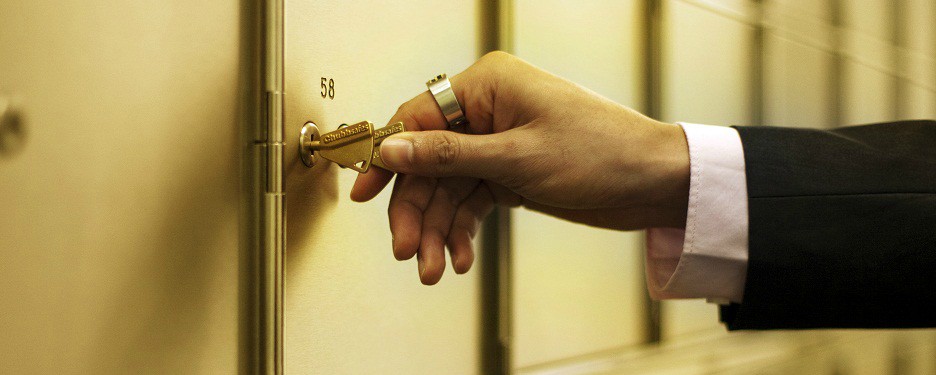Risks of Storing Assets in a Bank
There is a general notion that a safe deposit box in a bank could be the safest place. However, there are important facts, both advantages and disadvantages, that one should be informed about storing their assets in a bank.

Advantages
1. Safety
Banks are very secure. More so, safe deposit boxes that are held in bank vaults are well secured against theft, damage or unauthorised access. Documents or valuables in the safe are protected against loss, misplacement or natural disasters like flood and storms.
In as much as there has been cases of vandalism, even in the most secure lockers, bank safes remain the most secure due to the multiple layers of security put in place to protect the facility.
2. Privacy
Access to the safe deposit box is limited to the person with authorised access. This means that no other person has access to the box, unless one has been appointed as a deputy or a joint rental designation.
More so, even the bank officials have no access to the lockers as they are not authorised. The authorised person is usually provided with access keys or codes that are unique, where no one else has a copy.
3. Next of Kin Access
It is provided that in the event one becomes incapacitated or dies, the next of kin can access the safe. Nonetheless, it is only when one dies or becomes incapacitated that the next of kin can access the safe deposit box as provided for in the will.
Nevertheless, it is through a long court process that would then allow a next of kin access to the safe box.
Disadvantages
1. Not Insured
Generally, banks are insured federally. However, it is of the essence to note that the content of one’s valuables in the safe deposit box is not insured.
In the United States, the Federal Deposit Insurance Corporation (FDIC) only insures the money stored in one’s bank accounts. This means that the contents in safe deposit boxes are not protected.
2. Storage Cost
In spite of the contents in safe deposit boxes not being insured or protected, banks often charge an annual fee as a cost of using the facility. The annual charges varies, depending on the size of the box.
3. Size Limitation
In some banking facilities, space may be limited and hence, large safe deposit boxes may not be available. This means that bulkier valuable items may not be stored in a bank safe.
4. Time Limitation
Unlike safe deposit boxes in private vaults, bank safes have limited access. Normally, one can access the safe only during bank operation hours.
Sometimes, one may want to have to access to important documents or valuables, but it may not be within the bank operation hours. Also, some documents like passports may require more regular access, so bank safe boxes may not be the most convenient option.
5. Denied Access
Although rare, a bank may experience a civil litigation where bank assets are frozen to collect a debt. This may cause one to be denied access to the safe deposit boxes until the bank assets are released.
Besides a bank, safe deposit boxes are also available in private vaults. Find out more about Ultra Vault’s Safe Deposit Box services at key locations worldwide:

